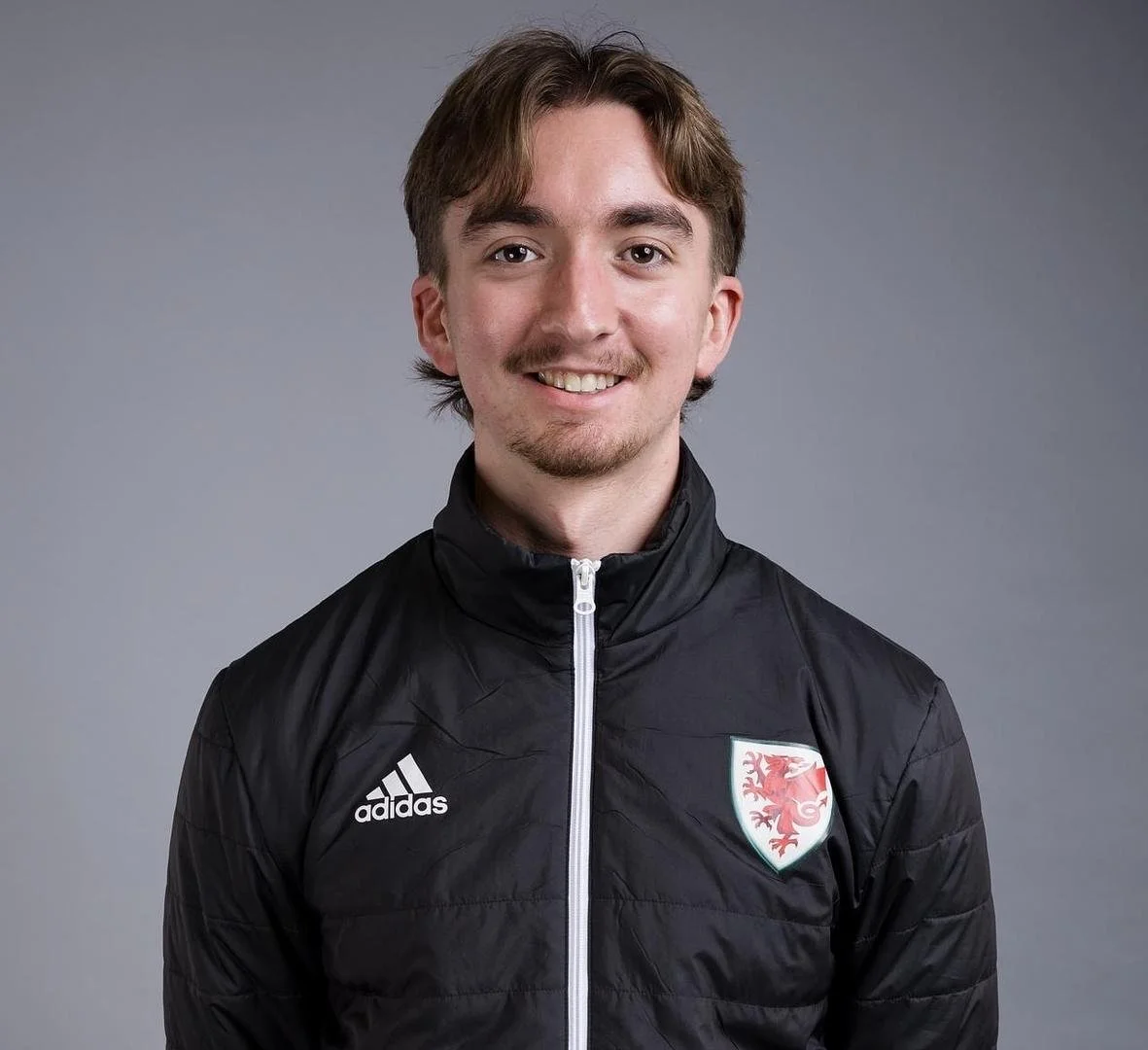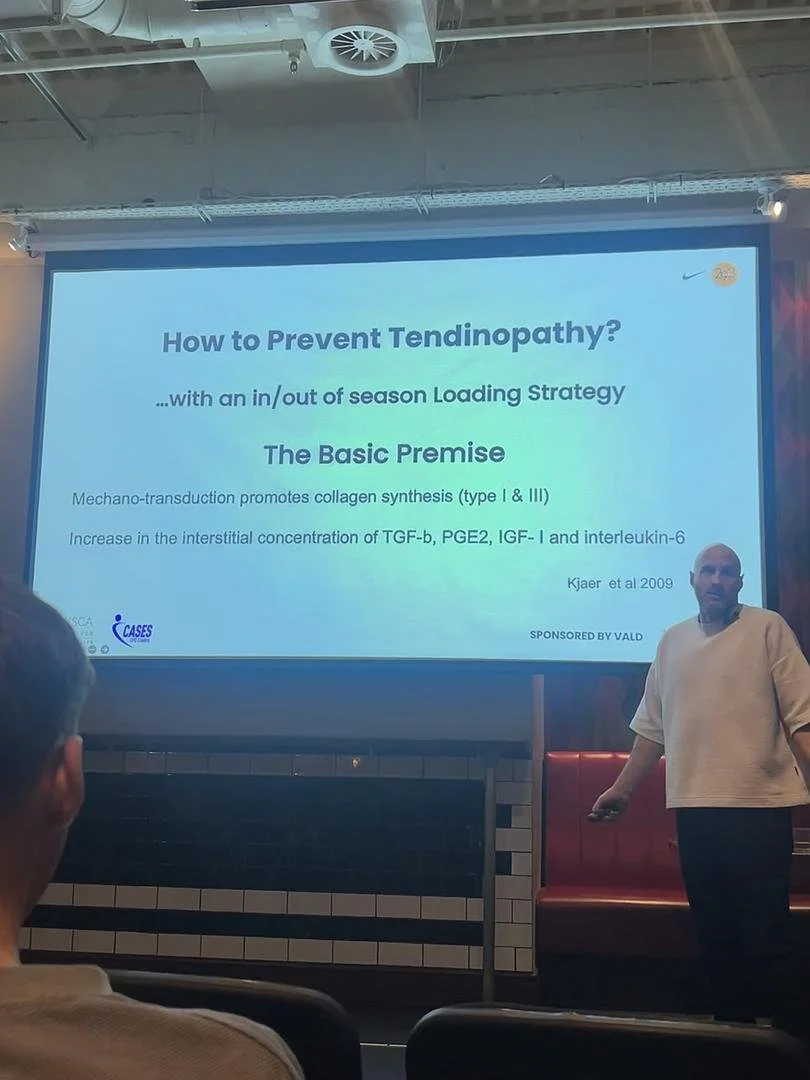The World’s Best MDT Meeting?
Joe Scott joins us to write a blog this month, sharing his reflections from the recent 292 Performance Conference. Joe is a physical performance coach for the Welsh FA and is currently studying a masters, and is a member of our Collaborate Sports Mentorship Community. Check out Joes reflections below, in addition to some reflective questions from us that you can use to enhance your practice based on the insights shared from article!
I went to the 292 Performance Workshop in 2024, at Red Bull in Central London and was blown away. The calibre of speakers, the layout, the location. It was all mesmerising to me as a 3rd year student studying a BSc in Strength and Conditioning, and it filled me with so much excitement about a career in high performance and I felt so lucky to have been there and witnessed such an incredible day of learning and growth.
Fast forward a year, still a student but studying an MSc in Advanced Sport Performance Science alongside part-time work as a physical performance coach for the Football Association of Wales, I couldn’t wait to attend the 292 Performance Conference this year and build upon what I’d learned from the workshop the year before, and all the experience I had gained. However, I wasn’t sure it could beat last year’s with the bar set so high, but it did.
What I found particularly brilliant, was that there was a speaker representing almost every discipline from a multi-disciplinary team (MDT), with Mat Banks providing valuable insights on strength and power, Jarrod Antflick discussing rehabilitation and prevention around tendons, Dr Pete Tierney explaining recovery strategies for adaptation, and finishing with a bang, as James King demonstrating the impact and importance of performance psychology which was my personal highlight.
I could go on and on about how much I loved the event, however, here are my top three takeaways from the conference.
Be Intentional
Being intentional with what you do sounds easy, right? We’ve all heard it before. However, it stuck out to me today that we can’t just be intentional with what it says in our job description, but we need to be intentional with everything we do when we are in a performance setting.
For example, Dr Pete Tierney (Performance Scientist at 292 Performance) highlighted this when he spoke about making the most of recovery, as that can be an area that may be neglected from time to time. We can’t just do cryotherapy because we saw a Premier League team doing it on Instagram — we need to be looking into exactly what we are trying to achieve. As Pete pointed out, we need “synergy not interference”, which is especially important when the whole idea behind recovery is returning athletes to baseline or better by reducing load, not adding to it.
Mat Banks (Physical Performance Coach at 292 Performance) demonstrated this same idea when he went into depth about strength and power development. When training athletes, we need to think to ourselves about what adaptations we want to make from an anatomical and physiological lens, rather than just programming exercises because we like them or because we’ve seen a coach we admire doing them.
I was particularly impressed with the way James King (Performance Psychologist, Accelerating Excellence) illustrated this from a psychological perspective, and how we can be intentional with concepts like visualisation and remind ourselves about the unique qualities associated with moments when we were at the top of our game, or as he described it, “blue head state.” What really stuck out to me was that through training and exposure, the part of our brain that brings us back to ‘blue head state’ when we dip into ‘red head state’ (high arousal but with negative emotion) can grow in size. It’s a perfect way to sum up just how important being intentional with what we do can be.
Key Takeaway:
Intentionality must extend beyond our job descriptions. Whether it’s recovery, training, or mindset, every action in high performance should have a clear purpose aligned with the adaptation or behaviour we want to achieve.
Do the Basics Exceptionally
Something that makes the best coaches in the world the best, is because they do the basics not just well, but exceptionally well.
James Redden (Physical Performance Coach at 292 Performance | England U21s Men) gave some great examples of this from the perspective of establishing yourself in a performance environment. For instance, when he was with the England U21 squad at the Euros, the basic concept of recovery was absolutely maximized, as they had to play 6 games in 17 days. They planned strategies around fuelling, sleep and recovery meticulously, and this resulted in having 100% match availability, and 98% training availability in a high-pressure tournament — an amazing achievement and a perfect example of doing the basics phenomenally well.
This was echoed by Lois Mackay (Sport Scientist at England Netball) who spoke about her approach with England Netball, which involved principles in practice that they use. The first principle she mentioned resonated with me, as she discussed that we need to understand not just the demands of the game or tournament, but the extreme demands. This involved identifying what they are preparing for, where the current gap is, and how they are going to adapt to bridge that gap. She then dived deeper into the structure of competition, looking at daily and weekly targets.
This was one of my favourite parts of the conference, as each speaker wouldn’t just speak about a concept broadly, but they’d show it from a wide view, and then zoom in bit by bit, to provide complete context of what they were presenting on.
Key Takeaway:
Elite performance isn’t built on complexity, it’s built on mastery. The best practitioners commit to executing the fundamentals with precision, consistency, and attention to detail.
The Power of the Pod
The best organisations that I have witnessed or heard of all had one thing in common, and that’s alignment — everyone being on the same page, working towards the same goal.
Steve Kemp (Head of Medical at The FA) used an analogy to visualise this, speaking about orcas and the ‘power of the pod’. Getting to a point where communication is almost telepathic, together as one group collaborating, is something we should all strive for, and something he has implemented within the English FA. Looking to those around you to help each other when you are part of an MDT is crucial, and each member of a team needs the person next to them just as much as the person next to them needs them. This is why it’s so valuable to create an environment where everyone works together, and this probably isn’t evident in enough environments.
Key Takeaway:
Alignment and interdependence are the hallmarks of great teams. The most successful environments function like orca pods — unified, selfless, and synchronised in pursuit of shared success.
Overall, the conference was fantastic. I’ve found in the past that I can get lost in the big conferences, with little opportunity to ask questions. However, at 292 Performance, there was a Q&A after every speaker, with opportunity for further discussion afterwards. I also absolutely loved that within every Q&A, Ben Rosenblatt (Founder of 292 Performance | Formerly The FA) would add his own experiences and stories, which I was so grateful to be able to listen to, as he is someone who inspired me from before I’d even started university and studying strength and conditioning. Ben added such valuable insights, and the team he has around him is phenomenal, and what makes 292 Performance such a great organization. I can confidently say that I will be going again next year, and I’m already excited.
Looking Ahead: Turning Joe’s Reflections into Your Own Practice
Reading Joe’s reflections from the 292 Performance Conference, it’s clear how much depth and learning came from being immersed in that environment. His takeaways on intentionality, mastering the basics, and the power of alignment within a team are lessons that reach far beyond the conference hall.
As you finish this piece, I’d encourage you to pause and consider how these insights translate into your own setting — whether you lead, coach, or contribute within a team. The questions below are designed to help you connect Joe’s experiences to your daily practice and challenge how you show up within your environment.
Reflective Questions to Take Forward
Be Intentional
Are your daily coaching or support decisions clearly linked to the specific adaptations or behaviours you want to create?
How can you ensure that every action you take — from programming to communication — aligns with a clear performance purpose rather than habit or imitation?
Do the Basics Exceptionally
Which “simple” aspects of your practice could you execute with greater precision or consistency to raise overall performance standards?
How do you model excellence in the fundamentals so that others around you see that the basics truly matter?
The Power of the Pod
How aligned is your team in purpose and communication — and what barriers might prevent genuine collaboration?
What’s one thing you could do this week to better support someone else’s role or perspective within your multidisciplinary team?
Thank you Joe for sharing your experiences!
If you enjoyed this article, consider subscribing to our weekly newsletter too, where we share performance principles and insights aiming to help you create clarity in your decision making, and confidence to apply your new insights in practice. Join HERE






